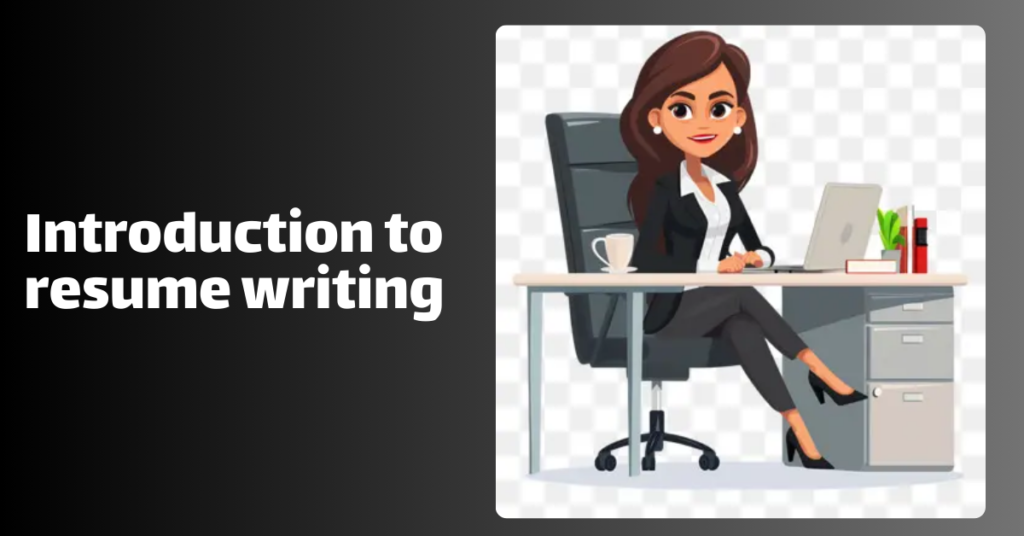
Menu
Facebook-f
Twitter
Google-plus-g
7 Tips for Writing a Resume for a Career Change
7 Tips for Writing a Resume for a Career Change
Transitioning to a new career can be both exciting and challenging. Writing a resume that effectively communicates your transferable skills and experiences is crucial to making a successful career change. Here are seven detailed tips, complete with thorough explanations and contextualized examples, to help you craft a resume that stands out during your career transition.
- Identify Transferable Skills
When changing careers, it’s vital to identify skills that can transfer from your previous roles to your new career path. Transferable skills are abilities you’ve developed in various contexts that are relevant to the job you’re seeking. Here are some scenarios;
- Maria, a teacher transitioning to a corporate training role, she will have to highlight her transferable skills by emphasizing her ability to create and deliver engaging educational content. She will write, ‘Developed comprehensive lesson plans tailored to diverse learning styles, ensuring all students achieved their learning goals.’ These skills are directly applicable to designing and delivering corporate training programs.
- John, moving from retail management to project management, focused on his organizational and leadership skills. He included, ‘Managed a team of 15 employees, coordinating schedules, resolving conflicts, and ensuring high customer satisfaction.’ These experiences demonstrate his ability to lead and manage projects effectively.
- Jessica, shifting from a marketing role to a human resources position, emphasized her communication and interpersonal skills. She described, ‘Led marketing campaigns that required collaboration across departments, fostering strong working relationships and clear communication.’ These skills are crucial for HR roles that involve employee engagement and communication.
- Rewrite Your Professional Summary
A strong professional summary at the beginning of your resume can quickly convey your qualifications and enthusiasm for the new career path. This section should be tailored to highlight your relevant skills and experiences. Let’s take a look at these examples;
- Mark’s professional summary was rewritten to reflect his career change from engineering to data analysis: ‘Detail-oriented data analyst with a background in engineering, adept at using statistical tools to interpret complex datasets and generate actionable insights. Passionate about leveraging analytical skills to drive data-driven decision-making.’ This summary positions him as a candidate with a strong analytical background.
- Anna transitioned from a journalist to a public relations specialist, updating her summary to: ‘Experienced communicator with a strong background in journalism, skilled in crafting compelling narratives and managing media relations. Seeking to leverage writing and storytelling expertise in a public relations role.’ This effectively highlights her relevant skills.
- Chris, moving from a customer service role to sales, adjusted his summary to: ‘Customer-focused professional with extensive experience in customer service, skilled in building relationships and identifying customer needs. Eager to apply interpersonal skills and customer insights to a sales position.’ This showcases his suitability for a sales role.
- Focus on Relevant Experience
Emphasize experiences from your previous roles that are most relevant to the new career path. Even if the roles are in different industries, the skills and accomplishments can often be related. For example;
- If you being a healthcare professional transitioning to a health IT role, you might have to highlight relevant experience such as, ‘Implemented electronic health records system, training staff on its use and troubleshooting issues to ensure smooth operation.’ This experience is directly applicable to health IT roles.
- If you were moving from finance to education, you will have to focus on your experience in training and mentoring junior staff: ‘Developed and conducted training sessions for new hires, improving their understanding of financial processes and systems.’ This shows his ability to educate and train others.
- Imagine Jessica, shifting from event planning to marketing, she needs to emphasize her experience in promoting events: ‘Managed marketing campaigns for events, utilizing social media and email marketing to increase attendance by 20%.’ This demonstrates her marketing skills.
- Highlight Achievements and Results
Quantifying your achievements provides concrete evidence of your capabilities. Highlighting results can make your resume more impactful and demonstrate your potential value to a new employer. Lets go through some scenarios;
- Alex, an IT professional transitioning to cybersecurity, included, ‘Reduced security breaches by 30% through implementation of advanced monitoring systems and employee training programs.’ This quantifiable achievement shows his effectiveness in a relevant area.
- Maria, moving from administrative support to operations management, highlighted, ‘Streamlined office procedures, resulting in a 25% reduction in processing time for customer orders.’ This demonstrates her ability to improve efficiency.
- Jake, transitioning from sales to business development, included, ‘Exceeded sales targets by 15% through strategic account management and innovative sales techniques.’ This showcases his sales success and strategic thinking.
- Obtain Relevant Certifications or Training
Earning certifications or completing relevant training courses can enhance your qualifications and show your commitment to the new career path. These credentials can also fill in any gaps in your experience. Scenarios;
- While transitioning to a career in digital marketing, you may verify that you completed a certification in Google Analytics and included, ‘Certified in Google Analytics, with hands-on experience in analyzing website traffic and optimizing marketing strategies.’ This certification adds credibility to her skills.
- Moving from hospitality to human resources, you might have obtained a certification in HR management and so mention, ‘Certified HR Management Professional, with knowledge of employee relations, recruitment, and compliance.’ This demonstrates his formal training in HR.
- Let’s imagine Samantha, shifting from teaching to instructional design, completed a course in e-learning development: ‘Completed e-learning development course, skilled in creating interactive online training modules.’ This shows her commitment to acquiring new skills.
- Use a Functional or Hybrid Resume Format
A functional or hybrid resume format allows you to emphasize your skills and accomplishments over a chronological work history. This can be particularly useful for career changers. Lets look at these scenarios;
- Mark hopes to showcase his transferable skills in engineering and data analysis, he decided to use a hybrid resume format to with sections like ‘Analytical Skills’ and ‘Project Management Experience’ prominently displayed. This format allowed him to highlight relevant skills despite his limited experience in data analysis.
- Anna’s functional resume highlighted her communication and writing skills under sections such as ‘Writing and Editing Experience’ and ‘Media Relations.’ This format effectively demonstrated her qualifications for a public relations role
- Chris used a functional resume to emphasize his customer service and sales skills, with sections like ‘Customer Interaction’ and ‘Sales Techniques.’ This allowed him to focus on his strengths and relevant experiences.
- Tailor Your Resume for Each Job Application
Customizing your resume for each job application shows employers that you are specifically interested in their position and understand the unique requirements of the role. For example; Tailor your resume for a health IT position by emphasizing experience with electronic health records and including keywords from the job description. This targeted approach helps you stand out to potential employers. Customize your resume for an education role by highlighting training experience and including specific teaching methodologies mentioned in the job posting. This demonstrates your suitability for the position. Tailor your resume for a marketing role by focusing on event promotion experience and aligning your skills with the job requirements. This makes your application more relevant and compelling.
By following these tips and incorporating detailed examples, you can create a compelling resume that effectively highlights your strengths and potential in your new career path. Ready to craft your resume for a career change? Download our free resume template and start building your standout application today!
Address List
-
Makerere Hill Road, Ham Towers -
+256-703947778 -
info@professionalwriters.shop
Social Networks
Links List
Professional Writers Inc.
Turning Ideas Into Reality
Online Resume Writing Training [Free]





























